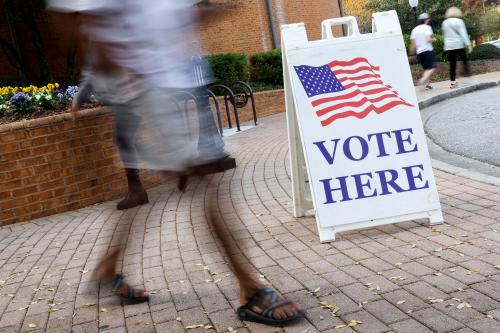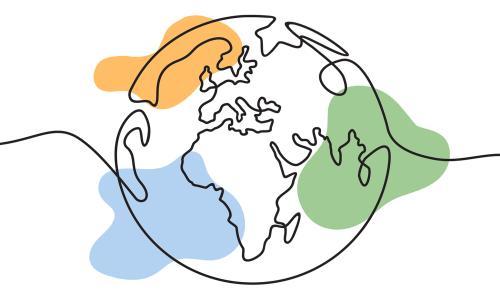

2:00 pm EST - 3:30 pm EST
Past Event
2:00 pm - 3:30 pm EST
1775 Massachusetts Avenue NW
Washington, DC
20036
On February 18, the Center for Technology Innovation at the Brookings Institution hosted an event to discuss MIT Media Lab Professor Alex “Sandy” Pentland’s new book. Social Physics: How Good Ideas Spread—The Lessons from a New Science (Penguin Press, 2014).
The event was moderated by Ann R. and Andrew H. Tisch Distinguished Visiting Fellow Cameron Kerry and included a presentation by MIT Professor Alex “Sandy” Pentland followed by a panel of Co-founder and Executive Vice President of Hunch Analytics Aneesh Chopra and Vice President of Governance Studies and Founding Director of the Center for Technology Innovation Darrell West.
Pentland described his coined term, “social physics” as quantitative science that describes reliable, mathematical connections between information and idea flow and people’s behavior – how ideas flow from person to person and how they shape norms, productivity and creative output. Coupled with new tools into collect and analyze big data on human interaction, the science of social physics yields insights on how large groups of people make decisions across disciplines, including health, finance, and politics.
Highlights from Pentland
Highlights from the panelists
To learn more about Social Physics, visit www.socialphysics.org.
2:00 pm - 3:30 pm
On February 18, the Center for Technology Innovation at the Brookings Institution hosted an event to discuss social physics and the uses of big data in providing explanations for human behavior. A panel of experts examined the applications of social physics in a variety of fields and provided examples from different industries to illustrate how social physics are already changing the way we understand our world.





Darrell M. West, Elaine Kamarck
November 6, 2023

Masood Ahmed, Dany Bahar, Amar Bhattacharya, Nancy Birdsall, Brahima Sangafowa Coulibaly, Hafez Ghanem, Carol Graham, Homi Kharas, Domenico Lombardi, Jacques Mistral, Galip Kemal Özhan, Zia Qureshi, Vera Songwe, Sebastian Strauss
October 2, 2023

Sophia Espinoza, Charlotte Wright, Kathy Hirsh-Pasek
July 18, 2023